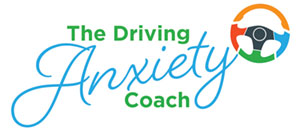The Paradox of Resistance: When What You Resist Persists
Have you ever noticed that the more you resist something, the more it seems to persist in your life? It’s a curious phenomenon that often leaves us frustrated and wondering why our efforts to eradicate or avoid certain things only seem to make them stronger. Ironically “What you resist persists.” In this blog, we will explore the underlying psychology behind this paradox and discover how embracing acceptance and shifting our mindset can lead to more rewarding outcomes.
The Nature of Resistance
Resistance is a natural response when we encounter something we perceive as negative or undesirable. (The reason you are reading this is because of your fear of driving, if not all together then in certain circumstances or on certain types of roads.) It stems from our instinctive need for control and self-preservation. We resist change, uncomfortable emotions, difficult circumstances, or anything that challenges our established beliefs or routines. It’s a defence mechanism that arises from a fear.
The Paradox Unveiled
Ironically, the very act of resisting and avoiding what makes you uncomfortable can perpetuate the persistence of what we are resisting. Here’s how it happens:
- Amplification: When we resist something, we tend to give it more attention and energy than it deserves. Our focus becomes fixated on the object of our resistance, making it seem more significant and powerful than it actually is. We inadvertently amplify its presence in our lives, and we become hypersensitive to how we feel when we do push ourselves and step into the uncomfortable.
- Energy reinforcement: Our resistance and avoidance is often fuelled by strong emotions such as anger, frustration, anxiety or fear. These emotions carry a powerful energy that can inadvertently fuel the persistence of what we resist. The more we invest our energy in fighting against it, the more it gains momentum.
- Cognitive reinforcement: Our thoughts play a crucial role in shaping our experiences. When we resist something, we engage in a constant mental battle against it. Our thoughts become consumed by the very thing we wish to eliminate, inadvertently reinforcing its presence in our lives.
The Path to Acceptance
To break free from the paradox of resistance and avoidance we must shift our perspective and embrace acceptance. Here are a few steps to guide you along the way:
- Awareness: Start by becoming aware of what you’re resisting and avoiding and the impact it has on your life. Pay attention to the emotions, thoughts, and behaviours that arise when you encounter the avoidance.
- Acknowledge and explore: Instead of immediately resisting, take a moment to acknowledge and explore your feelings. Understand why you are resisting and what it represents for you. Is your perception of driving down a particular type of road worse than the execution of it. This process of self-reflection can help you gain clarity and insight. (Journaling can help assist you in this area.)
- Reframe your focus: Instead of fixating on avoidance, consciously shift your focus to what you desire and the positive aspects of your life. Redirecting your attention and energy towards what you want to cultivate will gradually diminish the influence of what you’re resisting. How much longer is it taking you to get to work when you avoid the motorway. How is this effecting your employment prospects or other people in your household. What does it mean to you to be able to step up and not feel so anxious about that journey.
- Practice mindfulness and resetting your Vagus Nerve.
- Start journaling how you feel about your journeys and set your goals, big and small.
- Celebrate each win no matter how small.
- Accept regression is part of the course.
- NEVER give up.
The paradox of resistance reminds us that our efforts to eradicate or avoid making certain journeys can unintentionally give them more power and presence in our lives. By embracing acceptance, setting action plans, facing our fears, reframing how we feel by gentle exposure therapy, and journaling we can break free from this paradox and open ourselves up to new possibilities. Remember, what you resist persists.

